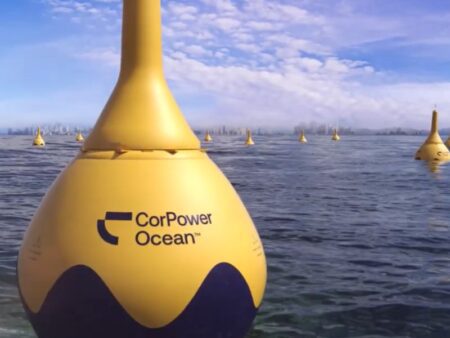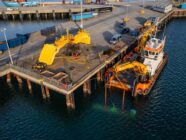
With electricity consumption potentially trebling by 2050, a new study from LUT University shows the UK will need 27GW of wave energy to reach the lowest cost, net zero energy system.
LUT University in Finland investigated potential scenarios for the UK and Ireland to successfully transition towards a 100% renewable energy system by 2050.
According to the research, the best-performing scenario sees the UK harness 27GW wave energy capacity to maximise energy system cost and security.
Christian Breyer, professor for Solar Economy at LUT University, and study lead, said: “Wave power has a high potential globally, in Europe and in particular along the Atlantic coasts in the UK and Ireland. For the first time we could show the high economic attractiveness of wave power for the entire energy system, which has to be now enabled with the right general framework for wave power.”
LUT University’s research paper ultimately concluded that, coupled with wave energy, a broad combination of renewables must be applied in the UK with storage, sector coupling and flexibility in order to reach 100% renewable energy.
Have you read?
EMEC’s Neil Kermode receives Outstanding Contribution Award
Tidal power: Making waves in the energy sector
Tides changing for marine energy
The release of this report is the latest in a number of developments within the marine energy sector.
In February this year, the UK Marine Energy Council gave evidence to the UK Government’s Energy Security and Net Zero Select Committee inquiry into securing the domestic supply chain.
“The Government has an opportunity to embed UK content in marine energy projects deployed in its waters and around the world,” said Richard Arnold, policy director at UK Marine Energy Council. “We are now calling for a consistent route to market for wave energy with clear and ambitious targets of at least 300MW deployed by 2035.”
Another report was also recently released by the University of Edinburgh, 2023 UK Ocean Energy Review, which found deployment of just 6GW of tidal stream and wave each, will lead to a reduction in energy system cost of over £1 billion ($1.3 billion) per annum.
In the foreword to the University of Edinburgh report, Andrew Bowie MP, minister for Nuclear and Renewables wrote: “The UK is a global leader in climate change, and we must continue to find and develop more ways to use naturally occurring renewable energy.
“We have some of the most promising renewable technologies available today on our doorstep, thanks to tidal’s predictable generation and wave energy’s significant potential. I would like to thank everyone involved for the achievements in this field this year and I am hopeful that in 2024 we will continue to see milestones being achieved in the development of these exciting, emerging technologies.”
Furthermore, a major player in wave energy, CorPower Ocean, made a recent announcement of a major industry breakthrough after completing the first cycle of the ocean commissioning for its first commercial-scale device at the Agucadoura site in northern Portugal.
The progression marks a crucial milestone for wave energy addressing the two major obstacles that have hampered commercial adoption to date – survivability and efficient power generation in normal ocean conditions.
Arnold added: “CorPower Ocean’s commercial-scale breakthroughs in Portugal, demonstrates that wave energy is ready to realise its crucial role in a secure and cost-effective transition to net zero. LUT University’s compelling report reinforces the importance of wave energy in the UK’s energy transition.
“The UK has the maritime expertise, offshore engineering experience and supply chains to lead the world in harnessing wave energy. It is critical that the UK Government provides a clear route to market and supports the wave energy industry investing in coastal communities and beyond.”








